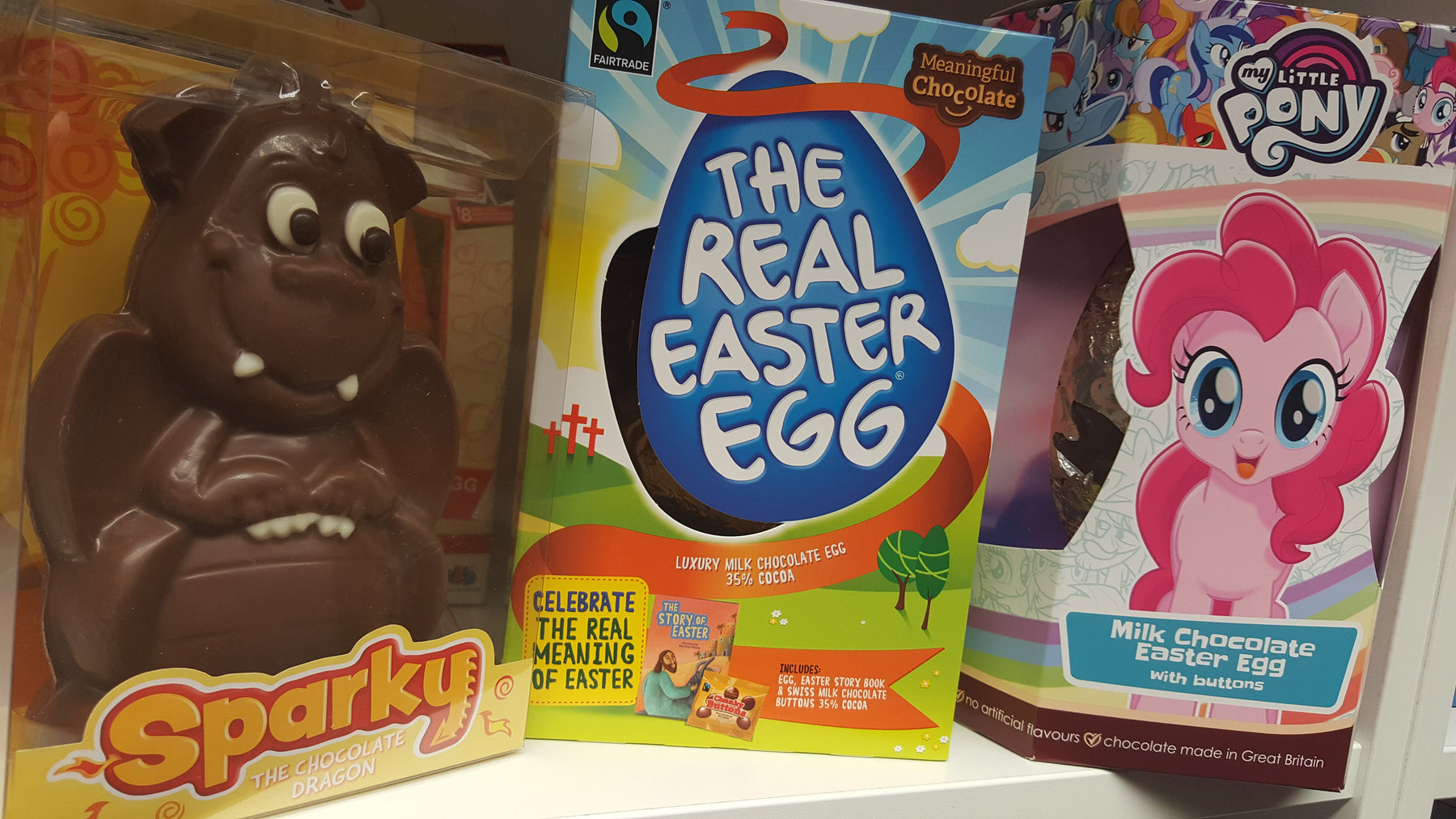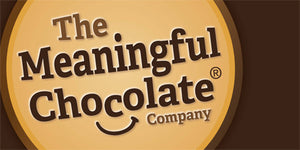(mainland GB only)

What is a Meaningful Easter?
By David Marshall
In 2008 I was given a chocolate Easter Egg. On the side of the box it read: ‘Easter is the festival of chocolate and loveliness’. It made me smile. But then I began to wonder – was it right for the manufacturer of an Easter egg to change the meaning of a religious festival in this way? Imagine the outcry if this had been done to Christmas.
I began the search for an Easter egg which mentioned the Christian story of Easter. It became clear that out of the 80 million eggs on sale there was not a single manufacturer who was willing to mention the religious aspects of the festival. Surely there had to be a place for one Easter egg which mentioned Jesus? As no one was willing to consider it I started a business, The Meaningful Chocolate Company, to manufacture the UKs first ‘Real Easter Egg’.
For it to be a ‘Real Easter Egg’ it had to reflect the Easter themes of hope and new life and do three things – have a copy of the Easter story in the box, be made from Fairtrade chocolate and support charitable causes.
At first the idea of a Real Easter egg was given the cold shoulder by supermarkets. Perhaps there was unease about ‘faith on the shelves’, perhaps people would be offended or would not buy them. It was a journey for us all.

Ten years on, The Real Easter Egg is on sale in Tesco, ASDA, Waitrose and Morrisons. It is also available from a string of independent shops and online retailers. We have sold over a million of them, donated more than £250,000 to charitable causes and increased the sale of Fairtrade chocolate.
Donations to charitable causes and more than £40,000 fees to Fairtrade.
I tell you this story, not to promote The Real Easter Egg, but to explain the unique perspective I have on the commercialism of Easter. Yes, I have run a commercial business for the last decade but through Fairtrade we pay fair prices to farmers, we support good causes and by including a copy of the Easter story in the box we aim to reconnect with the religious festival.
Origins of Easter
There is an ongoing debate over where the word Easter comes from – early Christian historians, Pagan or Viking? But that is to miss the point. It is only in the English speaking world and in Germany that Easter is known as ‘Easter’. In other countries Easter is known by words which mean Passover because the real origins of today’s global Easter celebration is the Jewish Passover. It was on the Jewish Passover that Jesus held the Last Supper, washed his disciple’s feet and was arrested. This was followed by Good Friday, when he was killed on the cross, then Easter Sunday when he was resurrected and the empty tomb was found.
Why Eggs?
The tradition of exchanging eggs, to celebrate the resurrection, has its roots in Lent. At the start of Lent people used to give up eggs. That’s why you make pancakes on Shrove Tuesday – to use up all the eggs. 40 days later, on Easter day, people were allowed to eat eggs again and decorated them with bright colours to celebrate the resurrection. The egg also came to symbolise new life in Jesus, the empty tomb or, for some, the boulder which was rolled away from the tomb.
Traditionally chocolate was also given up during Lent. So it was obvious, I suppose, that the two would come together. In the Victorian era, when it was possible to make hollow chocolate eggs, the true commercialism of Easter began with the first Easter eggs.
Here is an article on the subject of origins.
The disappearance of Easter debate
Today Easter eggs appear in January, we have seen attempts to introduce Easter trees, Easter Turkeys and other new products which try to cash in on the festival. Over the past few years there has been a debate on to what extent the word Easter is being removed from Easter egg packaging. But this is all a distraction. We have got to the stage where Jesus and any Christian imagery no longer features on any Easter products. Imagine if Christmas had the crib and the baby Jesus removed completely from all goods.
Avoiding any mention of Jesus, marketers struggle to attach a meaning to Easter – is it family time, get together time, spring time or the festival of chocolate?
A lost generation
The airbrushing of Jesus out of Easter has led to a generation which is losing a connection with Easter story, the most important festival in the Christian calendar.
Recent surveys show that nearly half the population does not associate Jesus with Easter, placing him fourth in relevance behind Easter eggs, hot cross buns and the Bank Holiday. More worrying is news that Jesus is only 6 points ahead of the Easter Bunny in relevance. Across England, Scotland and Wales people younger than 24 are the least likely to connect Jesus with Easter. They are also the group which is less likely to believe in the resurrection.

The Real Easter Egg is a chance to educate the kids - it's not all about Sparky the Demon Dragon or My Little Pony...
Opportunity to share
However, nearly 70% of those aged fifty and over are clear that Jesus is connected to Easter. I believe that for those of us over 50, with a Christian faith, there's an opportunity to pass on knowledge of the festival to younger parents, children and grandchildren. We have a mission to educate our children, inspire parents and share the story of Easter.

Mums and Nanas prepare to pass on the Good News...
On Easter Sunday more than a billion people on the planet will attend church services to celebrate the Resurrection of Jesus. For Christians it is a time to remember that the love of God is powerful enough to overcome even death.
So if you see some of your friends leaving for church on Easter Sunday, remember to wish them a happy Easter because this is the heart of the Christian faith. Without kindness and the love of our neighbours, which Jesus spoke about, and our faith in God's love shown in the resurrection, Easter, for Christians, would be no more than the festival of chocolate and loveliness.

The crucifixion from the story book inside The Real Easter Egg

The empty tomb from the story book inside The Real Easter Egg

The resurrection from the story book inside The Real Easter Egg

